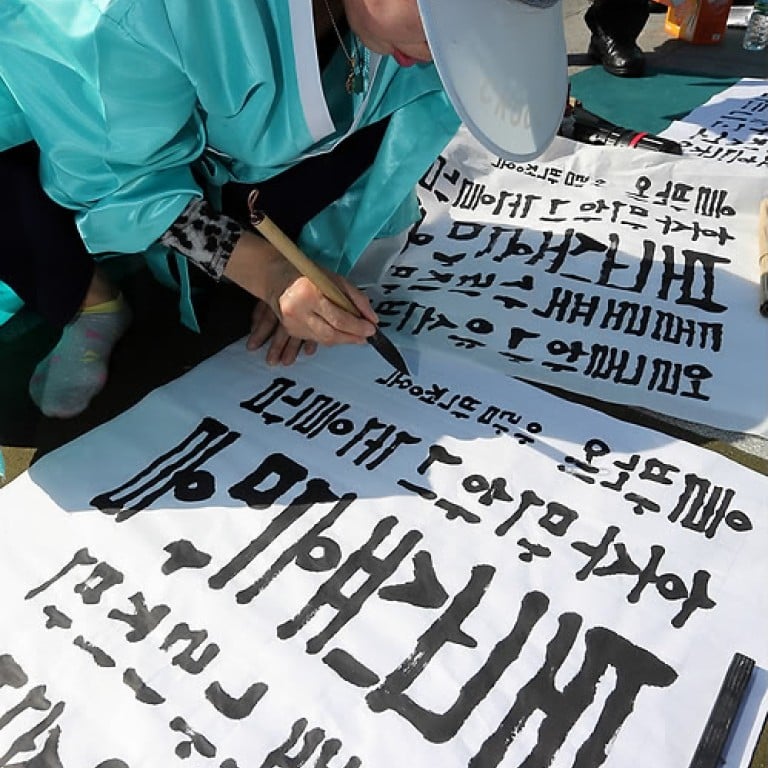
South Korea calls for ‘language purification’ campaign on Korean alphabet day
As Hangul Day is observed, Prime Minister Chung Hong-won urges Koreans to clean up language usage
South Korea’s prime minister called for a national “language purification” campaign on Wednesday as the country observed Hangul Day marking the invention of the Korean alphabet more than five centuries ago.
“We witness the rampant usage of slang, profanities and even verbal violence in our daily lives,” said Prime Minister Chung Hong-won at a ceremony marking the 567th birthday of Hangul, which was invented by King Sejong of the Joseon Dynasty.
“To remedy this bad culture, we need a national language purification campaign,” he added.
Chung’s remarks come as many Koreans bemoan what they see as a language crisis resulting from abbreviated speech on the internet, adoption of foreign words, widespread use of slang among youngsters and incorrect conjugation of honorifics.
The government was also to blame for incorrect usage of the language, said civic group Hangul Munhwa Yeondae. Out of the 3,000 press releases issued by South Korea’s 17 government ministries, the National Assembly and the Supreme Court from April to June this year, each document had on average nearly three violations of the national language law, it said.
The legislation, enacted in 2005, requires official documents to be written entirely in Korean and, if necessary, include Chinese characters or foreign words in parentheses.
“The late 1980s was the beginning of the Korean-only era but our language is under threat because of Sino-Korean words, Japanese words from the 20th century and globally dominant American English,” said Lee Gun-beom, the head of Hangul Munhwa Yeondae.
Efforts to preserve the Korean language go back to the early 20th century during Japan’s colonisation when Tokyo restricted its usage. Koreans, however, asserted their national and cultural identity through language.
Even today, South Korea regularly promotes the correct usage of Korean words and grammar through game shows, contests and public service announcements. Every year the National Institute of the Korean Language awards select public institutions for their exemplary usage of the language.
To that end, Seoul’s Financial Supervisory Service announced on Tuesday that it would examine Chinese- or Japanese-derived terms used in documents and contracts written by banks and insurance companies and replace them with “easier” Korean words.
Linguistic purism can be found in other Asian countries, including China and Malaysia, that are keen to preserve their linguistic heritage.
Beijing forbids state-run broadcasters from saying English acronyms like GDP and NBA on their programmes.
In Malaysia, Bahasa Rojak, a mixture of different languages spoken commonly among urban youth, remains highly controversial, as critics blame it for damaging proficiency in standard Bahasa Malaysia.
